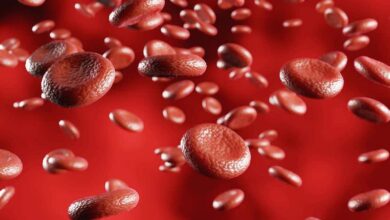How glass skin and social media filters are making us forget what real skin should look like

Clear, blemish-free skin is not a new beauty ideal. Coming of age in the 2000s and 2010s, I saw the glowing, airbrushed faces of celebrities and models in the pages of magazines and on billboards every day. And while Sephora tweens have sent the internet into a panic, young people have long been interested in skincare – they’ve just swapped the St Ives scrub for retinol.
Loading
Though while I may have pined for the perfect skin of the women on magazine covers, I always knew – even subconsciously – that the image I was seeing was manufactured to some extent. I understood the layer upon layer of expensive treatments, professional make-up artists and photo editing behind the glossy cover. Today, platforms such as TikTok and Reddit, with their air of authenticity, make it easier to feel like the flawless faces on your phone screen could be yours, if only you knew what products to buy and treatments to invest in.
Dr Veya Seekis, a lecturer at Griffith University’s School of Applied Psychology, who has studied the effect of social media filters on self-perception, says they are making it increasingly difficult for many people to distinguish between their digital and real selves.
“There’s a blurring between reality [and the digital world] when you’re looking at your own skin, that probably has pores and a bit of texture and maybe some laughter lines, which are all perfectly normal,” says Seekis. “But because we’ve internalised these images of skin as being wrinkle-free, poreless and without texture, we start to think that’s how skin should be.”
Her research has also found that although most of us are aware that filters are widely used online, altered images still have a similar effect on our self-esteem as unaltered ones. Many young women, she says, don’t see the use of filters as a negative either.
Indeed, cosmetic doctors have noted the rise of patients seeking surgery to look like their filtered selves. In 2020, researchers coined the terms “Snapchat dysmorphia” and “selfie dysmorphia” to describe the phenomenon. That same year, a study from the United Kingdom seeking to examine the use of selfie filters among 10- and 11-year-olds found their impact was most acute on girls. While boys largely used filters for entertainment, girls saw them as ways to enhance their beauty or remove perceived flaws.
While scientific studies on the impact of filters on the perception of our skin are scarce, one US survey from 2023 found that uneven skin tone was one of the top things respondents sought to mask.
As the increasing accessibility of cosmetic procedures makes looking like our filtered selves possible, skin care trends have evolved to make filtered skin a reality.
Glass skin, an Asian beauty trend that originated in Korea, has exploded into the mainstream skincare community in the past few years. As the name suggests, to have glass skin is to have skin that is plump, hydrated, and, most importantly, utterly poreless. Its proponents suggest that glass skin is achievable for anyone, so long as they have the time and money to invest in it.
But I’m less interested in whether glass skin is possible (Google will reveal countless tutorials and success stories), but what it says about the current state of beauty culture.
Loading
We see images of women with glass skin and immediately think their skin is a symptom of health. And yet, skin is not glass, nor should it be. Pores, spots, fine lines – these are all signs of a living, breathing thing. And this kind of obsession over a beauty standard that’s unattainable for most isn’t exactly new.
“In the early 2000s, we were looking more at eating disorders and that size zero trend,” agrees Seekis. “But now it’s almost like we’ve shifted from body shape and weight to youthfulness and maintaining glass skin.”
Where thinness was equated with health, to have “perfect” skin is to be someone who takes care of themselves, who isn’t lazy or unwell. Much has been written about the virtuous leanings of diet and wellness culture, and I think the same can now be said about skincare culture. Because if something such as glass skin is possible for anyone – as many online would have us believe – what does that mean for those who opt out? In the same way drugs like Ozempic have made thinness feel like a choice, the accessibility of skincare today can make opting out feel like a moral failure.
I won’t lie and say I’ve extracted myself from the pull of beauty culture. But what I am doing is taking a step back – from selfies, from insular online communities – and remembering that our skin is one of the best signals we have of a life well lived.
Make the most of your health, relationships, fitness and nutrition with our Live Well newsletter. Get it in your inbox every Monday.





